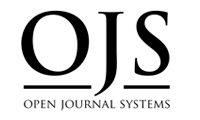Evaluation of the effect of arbuscular mycorrhizal fungi infection in three aromatic plants
##plugins.themes.bootstrap3.article.main##
Resumo
The aim of this study was to evaluate the effect of the colonization of arbuscular mycorrhizal fungi in the production of secondary metabolites in Petroselinum crispum, Salvia officinalis and Dysphania ambrosioides. Three treatments were established: Control (C), commercial inoculum (CI) and native inoculum (NI). Every 15 days height, stem diameter and number of leaves were measured. The percentage of colonization was assessed by staining of roots, and identification of flavonoids through TLC thin layer chromatography, finally the concentration of total phenols was evaluated by spectrophotometry from the ethanol extracts of each plant. The results of development of biomass and the percentage of colonization show statistically significant difference for the three variables evaluated (P≤0.05) from each culture in the treatment of NI with respect to control, showing a greater effect on plants of S. officinalis (51% and 91%, respectively). Chromatography reveals the presence of flavonoids in the three plants; however this is more intense for the treatment of NI, showing increased production of total phenols in S. officinalis. Finally, the chemical characterization of the substrate shows a higher assimilation of nitrogen and phosphorus (0.11% and 0.35 mg / kg respectively) in S. officinalis associated with a native inoculum (NI).



